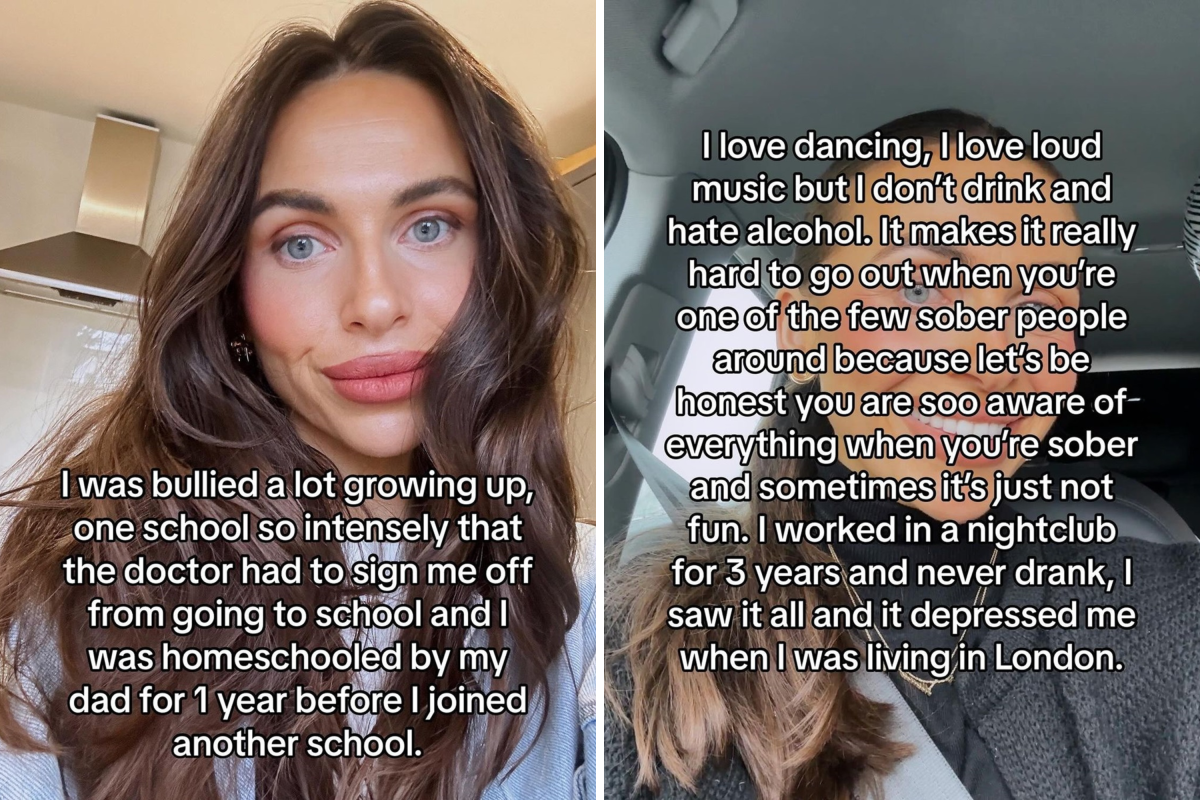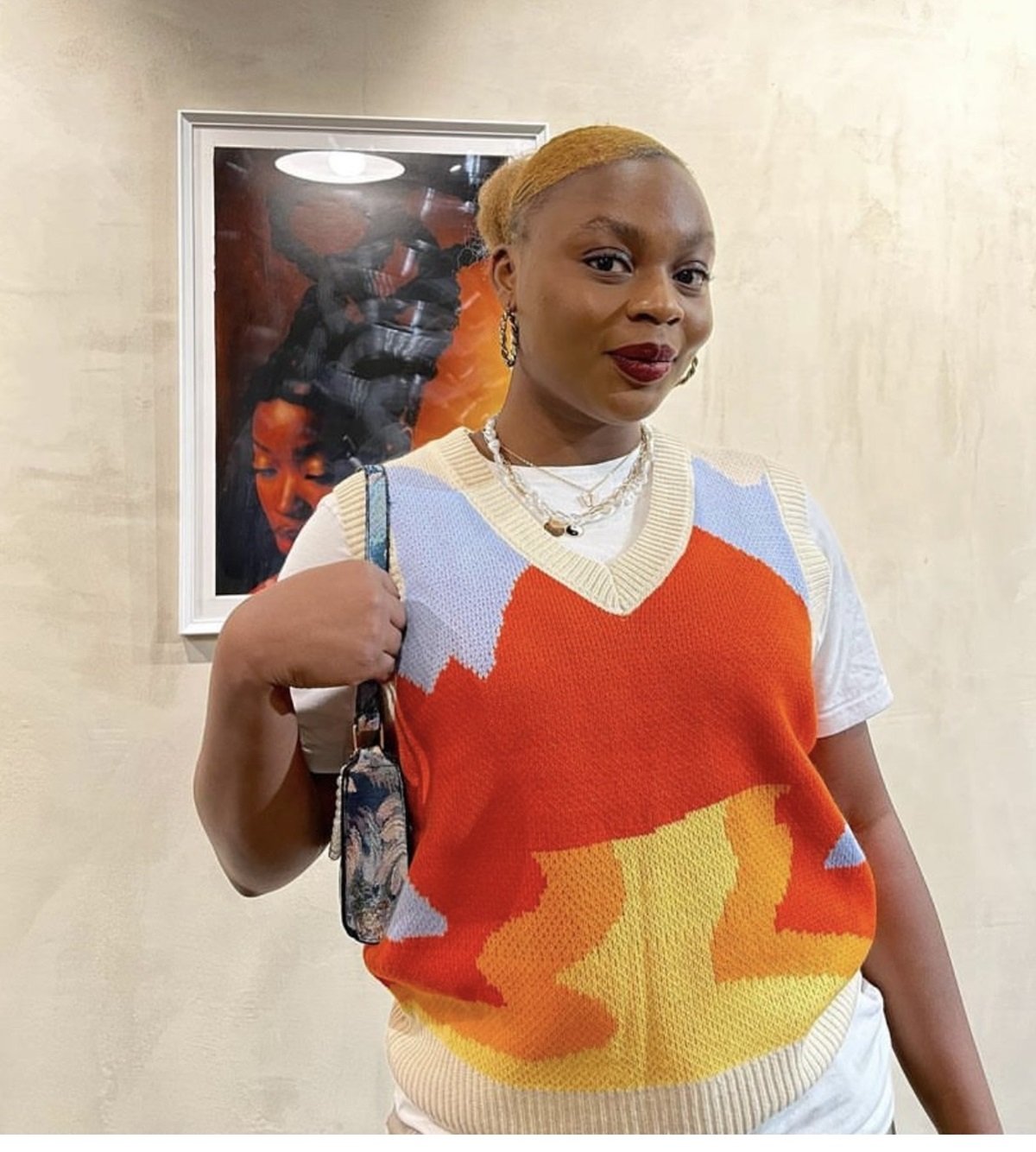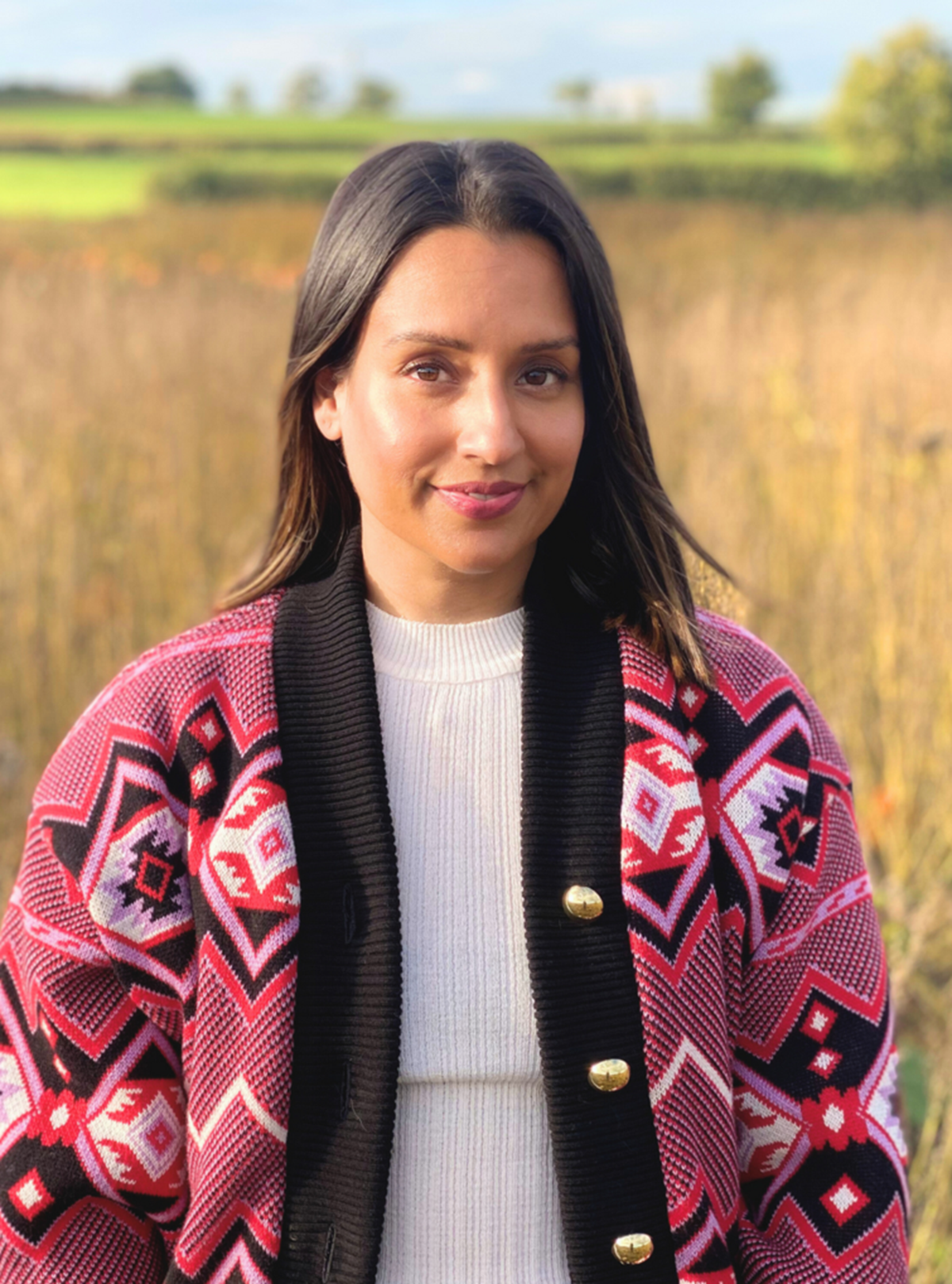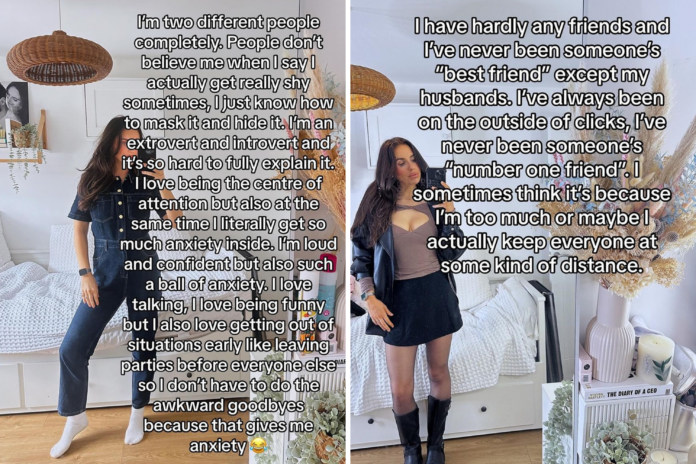It’s a trend that sees social media users share brutally honest snapshots of their lives, revealing the hidden truths behind their seemingly perfect posts. But the “Social Media is Fake” phenomenon is actually teaching us much more about society as a whole than we imagined––and there’s harsh reality in the findings.
Having amassed 52.8 million views on TikTok, the powerful new trend has captured the attention and imagination of millions worldwide, and is rapidly gaining momentum as users across platforms share candid insights, experiences, and revelations about the curated realities often presented on social media.
Among the topics highlighted thanks to the trend, loneliness was identified as a significant issue, suggesting that despite the seemingly connected nature of online spaces, many people still grapple with feelings of isolation.
Content creator Imogen Horton told Newsweek that discussing her personal insecurities and aspects of her upbringing publicly felt therapeutic for her, but there’s also a sense of sadness in what she shared.
Instagram/@imogenhorton
On February 28, Horton, who uses the handle @imogenhorton, posted eight photos with a lengthy paragraph on each explaining some truths about herself. From the outside, she appears to be a confident woman, but deep down she is a “ball of anxiety” who hasn’t got many friends. She explained that she has never had a best friend except her husband.
Speaking about her early 20s, she wrote: “I was lonely [and] I didn’t know who I was.” She continued: “I wasn’t comfortable in my body or my skin.”
In other slides, she spoke about her “perfect” family being torn apart due to a “toxic” divorce and severe bullying while at school. Her vulnerability has racked up almost 10,000 likes on Instagram.

Instagram/@imogenhorton
The mom-of-two from Brighton and Hove, U.K. told Newsweek: “If I’m being completely honest, I don’t think I could ever keep it all in. It’s not in my nature, I’m an open book, I always have been.
“Sometimes that’s too much for some people, but sometimes people love it and that’s one thing I’ve realized lately––you’re not everyone’s cup of tea but I like coffee anyway! I love my openness and if a small amount or a large amount of people do too then that’s just wonderful.”
Alongside the “Social Media is Fake” hashtag, contributors to the movement share side-by-side comparisons of their lives as depicted on social media versus their actual unfiltered experiences.
But content creator Latoya (Fits) Okuneye took a different approach to the movement, instead sharing insights into what this trend of openness and vulnerability has taught her. Okuneye, a photographer, summarized the common themes she noticed.
In her video, which has 26,500 views, Okuneye said: “If there’s anything I’m learning from this it’s the lack of community that people actually have. I’m learning that people are deeply lonely.
“Capitalism doesn’t care about children,” she added, claiming the system fails to offer adequate support to parents, leaving many feeling isolated, burdened by debt and lonely.
This commentary taps into a broader conversation among parents, particularly mothers, who are using social media to share their experiences and challenges in parenthood. Many have joined this trend to discuss the struggles they face, including feelings of loneliness and self-doubt about their parenting abilities.

Latoya Fits/TikTok/@latoyafits
Okuneye told Newsweek: “The trend is a good thing, as intense as some of the things people are saying are, because it’s exposing the state of a failed individualistic system we live in.
“Social media can be fake, but it also gives us a great insight into the lives of others and exposes deeper issues and patterns within our society.”
However, she did issue participants with a warning.
“I believe people should be cautious and careful about the information they reveal about themselves because of general safety––like their location and the amount of debt they owe,” she said.
Okuneye, from London, U.K., has been praised for making “very valid points” online.
Another user said: “Social media should be called antisocial. There’s nothing social about social media. Because you’re not being really social.”
The role of platforms like Instagram and TikTok in shaping perceptions of life has been a double-edged sword. While they serve as outlets for sharing life’s highlights and achievements, the impact on mental health, particularly among young users, has been a growing concern.
A recent study conducted by researchers at West Virginia University shed light on this issue. The results found that frequent use of certain platforms like TikTok, Instagram, and Twitter may pose a higher risk of depressive symptoms for some adolescents, emphasizing the need to consider individual differences and specific social media platforms in understanding mental health risks.
Newsweek spoke to consultant counselling psychologist Dr. Ritika Suk Birah about sharing the good, the bad, and the ugly on social media.

Instagram/@dr.ritz.psychologist
While Birah, who is also known as Dr. Ritz, believes the “Social Media is Fake” trend is a step in the right direction for a more authentic digital existence, she encourages users to “take it at face value.”
“It’s still a reel or photo that’s been chosen,” she told Newsweek. “You might not always get the full picture. I think breaking the barriers that life is not picture-perfect can be helpful, but my concern here would be vulnerable people oversharing in an unsafe way.”
She encourages users to follow accounts and people that make you feel good so your feed is filled with posts that help you build up your self-worth.
“Use your time and energy to focus on that,” said Dr. Ritz, from Leicestershire, U.K. “Think about disconnecting a bit more from the world of social media to live a present life where you can train yourself to be grateful for what you do have. It’s very easy to focus on what we don’t have and a fantasy to change those external factors.”
If you have a personal dilemma, let us know via [email protected]. We can ask experts for advice on relationships, family, friends, money and work and your story could be featured on Newsweek‘s “What Should I Do?” section.
Uncommon Knowledge
Newsweek is committed to challenging conventional wisdom and finding connections in the search for common ground.
Newsweek is committed to challenging conventional wisdom and finding connections in the search for common ground.


